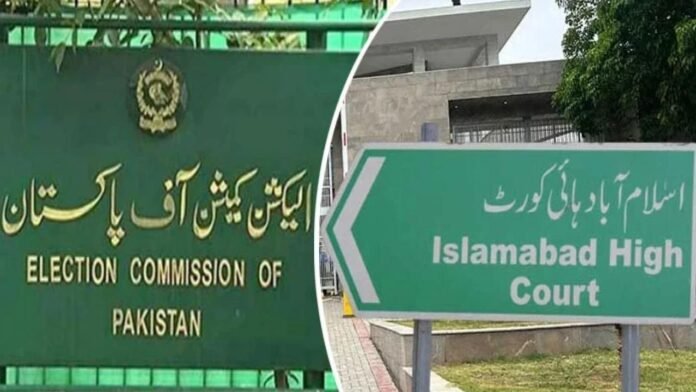Islamabad High Court recently intervened by suspending the Election Commission’s decision to restructure the election tribunals. Chief Justice Aamer Farooq oversaw the proceedings in response to a petition challenging the tribunals’ alterations. This decision marks a significant legal development in Pakistan’s electoral processes.
The court followed a series of legal steps and objections from different parties, like Ali Bukhari, who opposed the reorganization of the Election Tribunals. Their contestation underscores the controversial nature of electoral reforms and judicial oversight of fair elections.
The Supreme Court has also issued a severe contempt notice to Anjum Aqeel Khan for disrespecting judicial proceedings. Islamabad High Court required him to attend all hearings, reflecting their tough stand on maintaining decorum in courts.
In its judgement, the Islamabad High Court said that Anjum Aqeel Khan did not give enough justification for the language used in his application regarding judicial inquiry. This criticism shows the judiciary’s commitment to conduct and language in legal proceedings to ensure justice is done and all people are treated fairly.
IHC Upholds Due Process in Election Case
It also confirms that any legal challenge to election processes must be handled carefully and according to law. By stopping the Election Commission from restructuring tribunals. The Islamabad High Court has again shown itself to be a defender of constitutional rights and due process in Pakistan.
This comes amid ongoing discussions about how best to improve integrity and transparency during polls in this country. The judiciary’s active scrutiny of electoral activities indicates its dedication to rule supremacy, thereby promoting democracy.
Stakeholders will watch closely as the case continues through its various stages before reaching finality. After it becomes a binding president, future courts may use it while handling similar matters touching on our election laws or systems. These debates may determine many things concerning governance through elections. Still, more especially oversight over such exercises by judges based on what they have learned from these events thus far.
The Islamabad High Court’s suspension of changes made by the Electoral Commission on Tribunals indicates that our judiciaries are proactive institutions responsible for ensuring fairness and integrity within countries’ electoral processes, even if it means taking drastic actions like this one.


